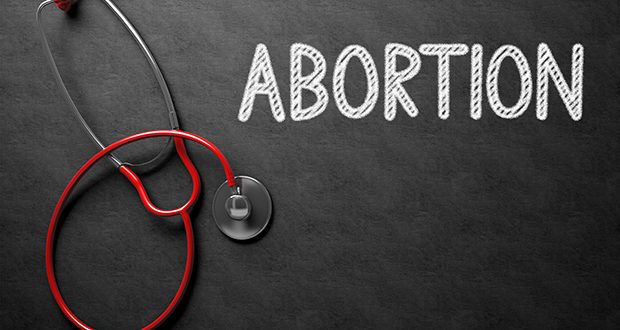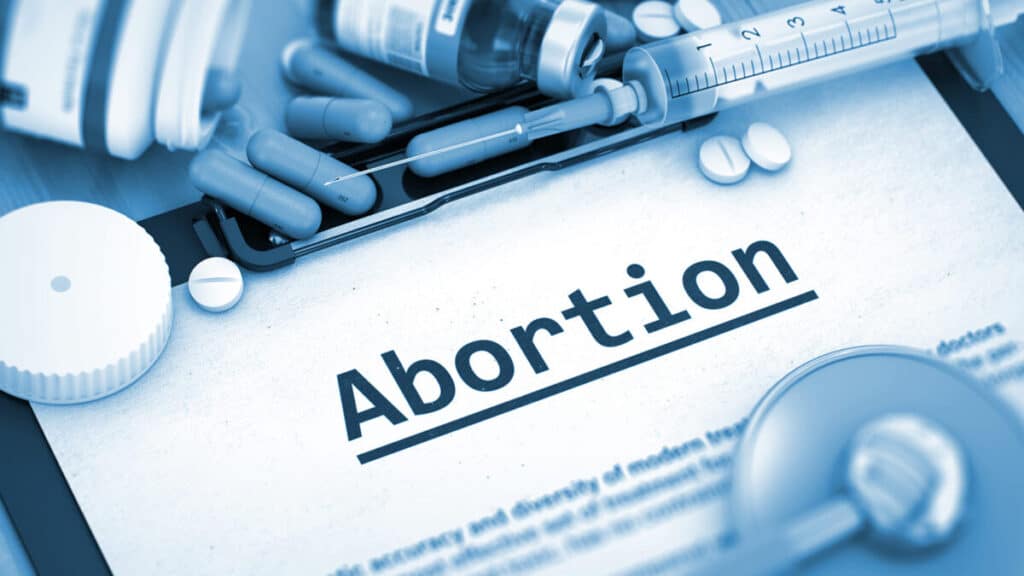Before looking into Abortion in Nigeria, it is important to define the term ‘Abortion.’ Abortion is simply the termination of a pregnancy before the fetus reaches viability.
In Nigeria, abortion is only legal in cases where it is necessary to save the life of the mother. Otherwise, it is considered a criminal offense under the Penal Code of Northern Nigeria and the Criminal Code of Southern Nigeria.
As a result, many women resort to unsafe and illegal abortions, which often result in severe health complications and even death. It is essential to provide safe and legal abortion services to protect women’s health and reproductive rights.

Drugs Used for Abortion
In Nigeria, where abortion is largely illegal, many women turn to drugs to terminate their pregnancies. There are two main types of drugs used for abortion: Mifepristone and Misoprostol. These drugs are also known as the “abortion pill” and can be obtained from illegal sources.
Mifepristone:
Mifepristone, also known as RU-486, is a synthetic steroid that blocks the hormone progesterone. Progesterone is essential for maintaining a pregnancy, and by blocking it, mifepristone causes the uterus to contract and expel the contents of the womb.
Mifepristone is typically taken orally and is effective in ending a pregnancy up to 70 days after the last menstrual period. It is usually administered in combination with misoprostol.
Misoprostol:
Misoprostol is a medication used to treat ulcers and prevent stomach ulcers caused by nonsteroidal anti-inflammatory drugs (NSAIDs). It is also used in combination with mifepristone to induce abortion. Misoprostol works by causing the uterus to contract, leading to the expulsion of the pregnancy. It is typically taken orally or vaginally and is effective up to 10 weeks after the last menstrual period.
The combination of mifepristone and misoprostol is up to 95% effective in inducing abortion, making it a safe and effective option for women seeking to terminate their pregnancies.
However, the use of these drugs should only be done under the supervision of a healthcare provider to ensure that the procedure is safe and that any complications are adequately managed.
The use of drugs to induce abortion is a risky and potentially life-threatening practice, particularly when obtained from illegal sources. The availability of safe and legal abortion services is essential for protecting women’s health and reproductive rights.
Women who are considering terminating their pregnancies should seek out professional medical advice to ensure that they receive the care they need in a safe and supportive environment.
Risks and Side Effects of Using These Drugs
Like any medical procedure, abortion drugs have risks and side effects. The most commonly used abortion drugs are mifepristone and misoprostol, which are used for medical abortion up to 10 weeks into pregnancy. Here are some of the potential risks and side effects associated with these drugs:
- Cramping and bleeding: These are normal side effects of the medication and typically last for a few hours to a few days. Bleeding can be heavy, but it usually decreases over time.
- Incomplete abortion: In some cases, the abortion may be incomplete, which means some of the pregnancy tissue remains in the uterus. This can lead to infection or other complications and may require additional medical treatment.
- Infection: Any medical procedure that involves the uterus carries a risk of infection. Signs of infection may include fever, chills, abdominal pain, and abnormal vaginal discharge.
- Allergic reaction: Some people may be allergic to mifepristone or misoprostol and may experience symptoms such as rash, itching, or difficulty breathing.
- Emotional effects: Having an abortion can be an emotional experience, and some people may experience feelings of sadness, guilt, or regret.
It is important to note that these risks and side effects are relatively rare, and medical abortion is considered a safe and effective method of ending a pregnancy when done under the supervision of a healthcare provider.
Women considering abortion drugs should discuss their options with a qualified healthcare provider and be aware of the potential risks and side effects.

Availability of These Drugs in Nigeria
The availability of abortion drugs in Nigeria is limited due to restrictive laws and policies surrounding abortion. Nigeria has some of the most restrictive abortion laws in the world, and abortion is only legal to save a woman’s life.
In practice, this means that women who seek abortions for other reasons may be unable to access safe and legal services and may resort to unsafe and illegal methods.
Mifepristone and misoprostol, the drugs commonly used for medical abortion, are not legally available in Nigeria, and their importation and distribution are highly regulated. This has led to a black market for these drugs, where they may be sold at inflated prices and of unknown quality and safety.
In recent years, there have been efforts to improve access to safe abortion services in Nigeria, including advocacy for policy reform and training of healthcare providers. However, progress has been slow, and many women in Nigeria continue to face significant barriers to accessing safe and legal abortion services.
READ: Autism In Nigeria: Cultural Perceptions and Implications
The Effectiveness and Safety of the Abortion Pill
The effectiveness and safety of the abortion pill have been extensively studied and documented in clinical trials and real-world use.
According to the World Health Organization (WHO), the abortion pill is up to 98% effective in ending pregnancies up to 10 weeks gestation. The effectiveness may be lower for pregnancies further along than 10 weeks. The abortion pill is also considered safe, with serious complications occurring in less than 0.5% of cases.
The most common side effects of the abortion pill are cramping, bleeding, nausea, vomiting, and diarrhea. These side effects typically last for a few hours to a few days and can usually be managed with over-the-counter pain medication and rest.
In rare cases, serious complications such as infection, heavy bleeding, or incomplete abortion may occur. However, the risk of serious complications is low when the abortion pill is used under the supervision of a qualified healthcare provider.
It is important to note that the abortion pill is not recommended for everyone, and there may be contraindications or other medical reasons why it is not appropriate for some individuals. A qualified healthcare provider can help determine if the abortion pill is a safe and appropriate option for an individual’s specific situation.
Overall, the abortion pill is a safe and effective method of ending a pregnancy when used under the supervision of a qualified healthcare provider. It is important for individuals to have access to safe and legal abortion services to protect their health and well-being.
Abortion Clinics in Nigeria
Abortion is highly restricted in Nigeria, and access to safe and legal abortion services is limited. In practice, many women in Nigeria resort to unsafe and illegal methods to end pregnancies, which can result in serious health complications and even death.
While there are no official abortion clinics in Nigeria due to the restrictive legal environment, there are organizations and providers that offer counseling, information, and referral services for safe abortion. These providers may also offer post-abortion care and support.
Some of the organizations that provide abortion-related services in Nigeria include:
- Marie Stopes Nigeria: Marie Stopes Nigeria is a non-profit organization that provides s3xual and reproductive health services, including safe abortion services, family planning, and post-abortion care. They have clinics and centers located in several states across Nigeria.
- Ipas Nigeria: Ipas Nigeria is an international non-profit organization that works to improve women’s access to safe and legal abortion services, as well as other s3xual and reproductive health services. They provide counseling and referral services to safe abortion providers.
- Safe Hands Maternal Centre: Safe Hands Maternal Centre is a non-profit organization that provides reproductive health services, including safe abortion services, family planning, and post-abortion care. They have a clinic located in Lagos.
It is important to note that accessing safe and legal abortion services is crucial for protecting the health and well-being of individuals who seek abortion. Individuals who are seeking abortion services in Nigeria should consult with a qualified healthcare provider to discuss their options and the availability of safe and legal services in their area.

Explanation of What an Abortion Clinic Is and What Services They Offer
An abortion clinic is a healthcare facility that specializes in providing safe and legal abortion services to individuals seeking to terminate a pregnancy. These clinics may also offer a range of other reproductive health services, such as pregnancy testing, contraceptive counseling, and s3xually transmitted infection (STI) testing and treatment.
Abortion clinics are staffed by qualified healthcare professionals, including doctors, nurses, and counselors, who are trained in providing safe and compassionate care to individuals seeking abortion services. They may offer both surgical and medication abortion, depending on the individual’s preference and medical eligibility.
In addition to providing abortion services, abortion clinics may also offer pre-abortion counseling to help individuals make informed decisions about their care and post-abortion care to ensure that individuals receive any necessary follow-up care and support.
Some abortion clinics may also offer additional reproductive health services, such as family planning counseling, contraceptive services, and STI testing and treatment. They may also provide education and outreach programs to help individuals and communities better understand reproductive health issues and access to care.
It is important to note that abortion clinics provide a critical service for individuals seeking to terminate a pregnancy. Access to safe and legal abortion services is crucial for protecting the health and well-being of individuals who seek abortion, and abortion clinics play an important role in providing these services.
SEE: Stress: 10 ways to manage it
The Cost of Abortion Services in Nigeria
The cost of abortion services in Nigeria varies depending on several factors, including the type of procedure, the provider, and the location. In general, abortion services can be expensive in Nigeria, especially for those who seek services from private providers.
For example, the cost of medication abortion, which involves taking two sets of pills to end a pregnancy, can range from about $25 to $80 in Nigeria, depending on the provider and location. Surgical abortion, which involves a procedure to remove the pregnancy, can cost anywhere from about $80 to $260 or more.
However, some organizations and providers in Nigeria offer abortion services at lower or subsidized costs. For example, Marie Stopes Nigeria, a non-profit organization that provides s3xual and reproductive health services, including safe abortion services, offers low-cost services to those who cannot afford to pay.
It is important to note that accessing safe and legal abortion services is crucial for protecting the health and well-being of individuals who seek abortion. Individuals who are seeking abortion services in Nigeria should consult with a qualified healthcare provider to discuss their options and the availability of safe and affordable services in their area.
READ: Procrastination: How to Beat it and Meet Deadlines
What is Considered Normal and What Is Not?
After an abortion, there are some physical and emotional symptoms that are considered normal, and others that may indicate a potential complication. It is important to monitor your symptoms carefully and seek medical attention if you have any concerns.
Normal symptoms after an abortion may include:
- Bleeding: Most individuals will experience bleeding after an abortion, which may range from light spotting to heavy bleeding similar to a heavy period.
- Cramping: Cramping is also common after an abortion, as the uterus contracts to expel any remaining tissue.
- Nausea and vomiting: Some individuals may experience nausea and vomiting after an abortion, particularly if they had a medication abortion.
- Emotional symptoms: Many individuals experience a range of emotions after an abortion, including sadness, guilt, and relief. These emotions can be normal and may vary in intensity and duration.
Symptoms that may indicate a potential complication include:
- Heavy bleeding: Soaking through more than one pad per hour, or passing large clots, may indicate heavy bleeding and require immediate medical attention.
- Severe or persistent pain may indicate a complication such as infection or injury to the uterus.
- Signs of infection: Signs of infection may include fever, chills, foul-smelling discharge, and abdominal pain.
- Emotional distress: While it is normal to experience a range of emotions after an abortion, it is important to seek support and counseling if you are experiencing intense or prolonged emotional distress.
If you have any concerns after an abortion, it is important to contact your healthcare provider for guidance and support. They can help you determine what symptoms are normal and what may require medical attention.

The Importance of Seeking Medical Attention If Signs of Pregnancy are Present
If signs of pregnancy are present after an abortion, it is important to seek medical attention promptly. This is because these symptoms could indicate a new pregnancy or a complication related to the previous abortion.
If a new pregnancy is confirmed, it is important to receive early prenatal care to monitor the pregnancy’s health and ensure that appropriate steps are taken to protect the health of the mother and the developing fetus. This may include monitoring the pregnancy closely, taking prenatal vitamins, and avoiding certain medications and substances.
If a complication related to the previous abortion is suspected, prompt medical attention is essential to prevent further health risks. This may include a medical evaluation, diagnostic tests, and treatment to address the underlying issue.
It is important to remember that each person’s experience after an abortion is different and that it is normal to have some pregnancy-like symptoms after the procedure. However, if there is any concern or uncertainty about the symptoms, it is important to seek medical attention to ensure the best possible outcome for one’s health.
SEE: 10 Ways to Keep a Healthy Lifestyle
Risks and Complications Associated with Abortion
Like any medical procedure, abortion has some risks and potential complications. However, most abortions are considered safe and have a low rate of complications.
The risks and complications associated with abortion can vary depending on the type of abortion procedure, gestational age, the individual’s health status, and the skill of the healthcare provider performing the procedure.
Some of the potential risks and complications of abortion include:
- Heavy bleeding: Bleeding is common after an abortion and is usually mild to moderate. However, in some cases, heavy bleeding can occur, which may require medical attention.
- Infection: There is a risk of infection after an abortion, particularly if the uterus is not completely emptied during the procedure.
- Injury to the uterus or other organs: Rarely, the abortion procedure can result in injury to the uterus or other organs, such as the bowel or bladder.
- Allergic reaction: Some individuals may experience an allergic reaction to medication used during the procedure, such as anesthesia.
- Emotional and psychological effects: Some individuals may experience emotional and psychological effects after an abortion, such as depression, anxiety, guilt, and regret.
It is important to note that serious complications from abortion are rare. Most individuals recover without any major problems. However, it is important to seek medical attention promptly if there are any concerns about potential complications or side effects after an abortion.
Healthcare providers can provide guidance and support to ensure the best possible outcome for one’s health.
RELATED: Healthy Eating Habits You Should Adopt for a Better Life
Possible Long-term Effects of Abortion
There is limited scientific evidence suggesting that abortion may have some long-term effects on physical and mental health. However, it is important to note that most individuals who have had an abortion do not experience any long-term negative effects.
Additionally, the available evidence suggests that the risks associated with abortion are generally less than the risks associated with carrying a pregnancy to term.
Some of the potential long-term effects of abortion that have been studied include:
- Future fertility: There is some evidence suggesting that multiple abortions may increase the risk of future fertility problems, such as infertility, miscarriage, or preterm birth. However, it is important to note that most individuals who have had an abortion do not experience any problems with future fertility.
- Mental health: Some studies suggest that individuals who have had an abortion may have a slightly increased risk of developing depression, anxiety, or other mental health problems. However, it is important to note that the majority of individuals who have had an abortion do not experience any mental health problems as a result of the procedure.
- Relationship issues: Some individuals may experience relationship problems or difficulties after an abortion, such as communication problems, feelings of guilt or resentment, or conflicts over the decision to have an abortion.
It is important to note that the potential long-term effects of abortion are still being studied, and more research is needed to fully understand the risks and benefits of the procedure.
Additionally, it is important to remember that each individual’s experience after an abortion is unique and that the decision to have an abortion is a deeply personal one that should be made in consultation with a healthcare provider.
SEE: Healthy Habits to Develop
The Importance of Seeking Medical Attention If Complications Arise
It is important to seek medical attention promptly if any complications arise after an abortion. Some potential complications of abortion include heavy bleeding, infection, injury to the uterus or other organs, and allergic reactions to medication used during the procedure.
Prompt medical attention can help prevent complications from becoming more serious and can improve the chances of a full recovery. Depending on the severity of the complication, medical attention may be needed urgently, and delaying treatment can have serious consequences.
Additionally, healthcare providers can guide and support individuals who have experienced complications after an abortion. They can provide information on how to manage any symptoms, prescribe medications if necessary, and monitor for any signs of further complications.
It is important to remember that most abortions are considered safe and have a low rate of complications. However, complications can occur, and seeking prompt medical attention is crucial to ensure the best possible outcome for one’s health.
READ: Mental Illness: Causes and Perception in Nigeria
Conclusion
Safe and legal abortion services are crucial for women’s reproductive health and rights in Nigeria. Access to safe and legal abortion services can reduce maternal mortality, prevent unsafe abortions, and promote gender equality. It is essential to seek medical attention from trained professionals in case of complications.
Women in Nigeria can find safe and legal abortion services by visiting a licensed health facility, contacting organizations such as the Planned Parenthood Federation of Nigeria, or seeking advice from a trusted healthcare provider. It is crucial to prioritize women’s health and well-being by ensuring that they have access to safe and legal abortion services.





